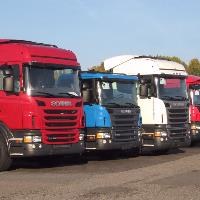(BRUSSELS) – The EU Commission on Tuesday fined truck producers – including Volvo/Renault, Daimler, Iveco and DAF – a total of EUR 2.93 billion for participating in a cartel and breaking EU antitrust rules.
The truck-makers all colluded for 14 years on truck pricing and on passing on the costs of compliance with stricter emission rules.
Truck-maker MAN was not fined,because it revealed the existence of the cartel to the Commission. All companies acknowledged their involvement and agreed to settle the case.
The Commission was sending a clear message to companies, said Competition Commissioner Margrethe Vestager, that cartels are not accepted. “In all, there are over 30 million trucks on European roads, which account for around three quarters of inland transport of goods in Europe and play a vital role for the European economy. It is not acceptable that MAN, Volvo/Renault, Daimler, Iveco and DAF, which together account for around 9 out of every 10 medium and heavy trucks produced in Europe, were part of a cartel instead of competing with each other. For 14 years they colluded on the pricing and on passing on the costs for meeting environmental standards to customers,” she said.
Today’s decision relates specifically to the market for the manufacturing of medium (weighing between 6 to 16 tons) and heavy trucks (weighing over 16 tons).
The investigation revealed that MAN, Volvo/Renault, Daimler, Iveco and DAF had engaged in a cartel relating to coordinating prices at “gross list” level for medium and heavy trucks in the European Economic Area (EEA); the timing for the introduction of emission technologies to comply with the increasingly strict European emissions standards (from Euro III through to the currently applicable Euro VI); and passing on to customers the costs for the emissions technologies required to comply with the European emissions standards.
The infringement covered the entire EEA and lasted 14 years, from 1997 until 2011, when the Commission carried out unannounced inspections of the firms. Between 1997 and 2004, meetings were held at senior manager level, sometimes at the margins of trade fairs or other events. This was complemented by phone conversations. From 2004 onwards, the cartel was organised via the truck producers’ German subsidiaries, with participants generally exchanging information electronically.
Further information will be available on the Commission’s competition website, in the public case register under case number 39824, once confidentiality issues have been resolved.



